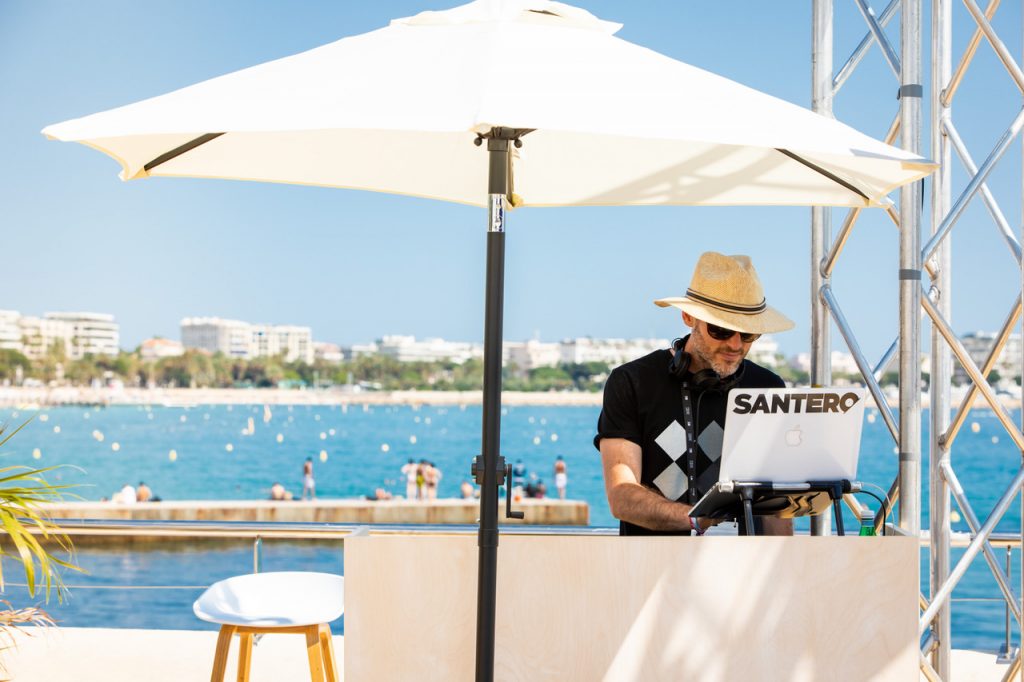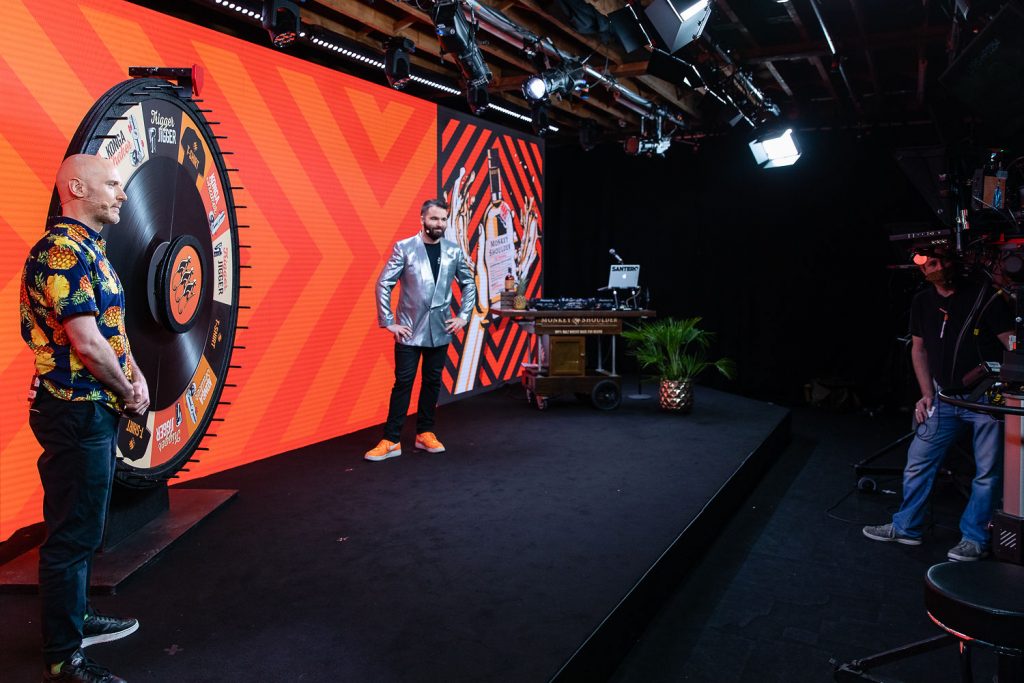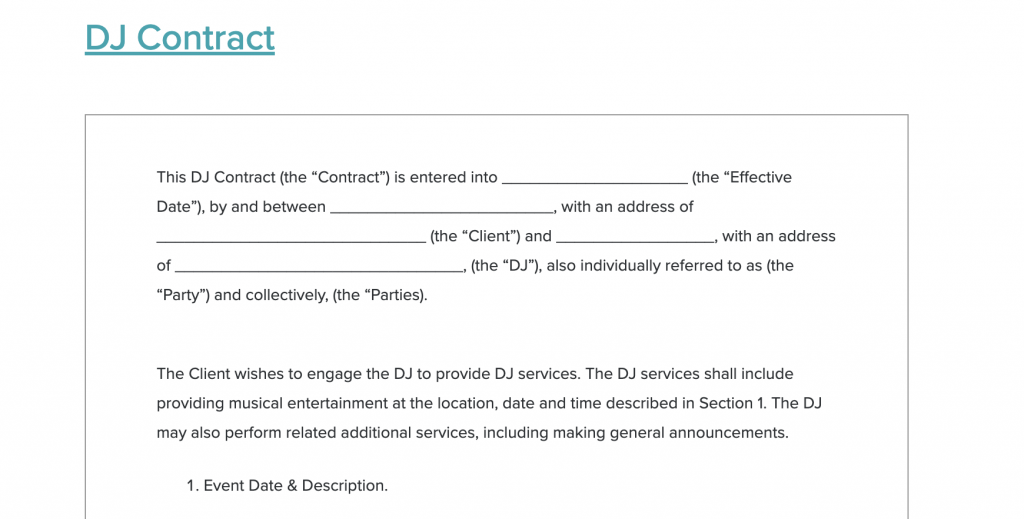
Performing at Corporate Shows
One thing that you learn as you grow up within the DJ industry is that there are a lot more facets to the trade than you realised as an outsider. And a lot of the best DJs have fingers in more than one of these pies, for all sorts of different reasons.
Today, we are going to talk about corporate gigs – ie, sets for company events, parties, trade shows etc.
“But why would I DJ for The Man, man?” you may ask. Well, mainly because they generally pay extremely well, considerably better than the average club or bar gig. Some DJ purists will think they are the worst thing ever, and so this article probably isn’t for them. The rest of you, strap in!
Getting Booked
This is probably the trickiest part. There’s a million companies out there, and there’s even more DJs. How do you go about getting on their radar?
The most obvious way is by being a really well known, cool DJ that brands want to be associated with. If thats you, well done! For the rest of us mortals, lets explore some other avenues.
You could try targeting ads for your services at Facebook users who have “event planner” and the like as their job title – many major corporate events are arranged by 3rd party companies. LinkedIn is largely seen as being for more “serious” industries than DJing, but consider updating your profile on there, and attempting to network with people, establish contacts with representatives at companies who are involved in putting events on, or targeting event companies. As with so much of DJing, a huge amount comes down to the networks you can build, and the contacts you have.
Carry business cards with you at all times and give them out as much as you can. Be inquisitive when speaking to people out and about – you never know who might end up contacting you in 6 months, asking about a set… When you spend your life surrounded by DJs, you find it hard to imagine that anyone could struggle to know how to book one, but when the social secretary at an accountancy firm is told “go and get a DJ for our Christmas Party”, most will not have a clue where to look!
So expand your network, and make people aware that you do this sort of work. It will take time, but as you grow in experience, your network will grow alongside that.
Brand Presence
For most DJs, this basically comes down to “What does my Instagram look like”. For others, they might have a website, a Soundcloud, a Twitch Channel, a YouTube, and so on. But, basically, when you are up for consideration for a gig, they will Google you, and then check maybe the top 1-3 results. Its really unlikely that they dig a whole lot deeper than that. So think about what image you want to portray to potential clients – here’s an excellent example from friend of the blog, Martin 2 Smoove.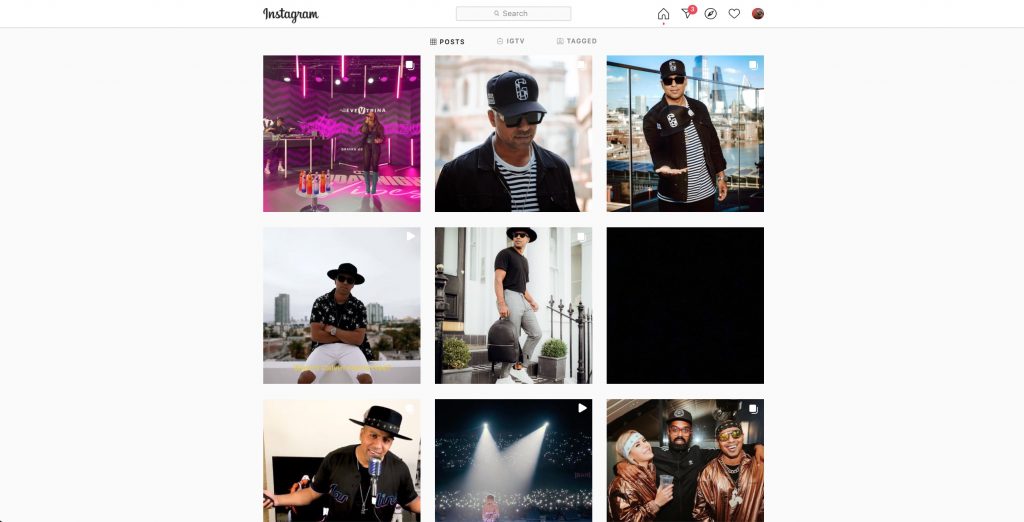
Having a slick, well-produced video showreel that showcases you performing at some exciting looking events is a huge win for this sort of thing – that can be hosted on your website and Instagram, and sent to potential clients. I know DJs who have spent their entire fee for an event on getting someone down to film it, knowing that the footage they will get in return will be worth many future bookings. Ultimately, its all about making them feel that they are getting a seasoned pro who has played at the kind of event they want to put on!
Know Your Role
Why did they bring you in? Is it to play a super accessible, cheesy mix of pop? Or to add some credibility to a brand because of your underground techno releases? This is generally quite clear, but its worth trying to gauge just where they want you to pitch it – I’ve misunderstood what brands have wanted before and ended up playing either way too commercial, or nowhere near commercial enough, or completely the wrong genres!
One very big DJ I spoke to on this topic made an astute point – he does a bunch of his cooler gigs for hardly any money, because they give him the rep to then be booked for huge fees by corporate brands. If he does too many corporate gigs, the cool slips. Not enough, he’s not making the money he wants to. So there’s a balancing act for some DJs, especially the more famous ones.
Negotiating Fees
This is always hard, in any corner of DJ world. You don’t want to pitch too low, and miss out on money you could have had. You don’t want to go in too high and scare them away. In my experience, they will generally ask what your fee is, assuming that you have a fixed fee or hourly rate. My suggestion is to avoid replying with a number straight away – ask a bunch of questions first. Where is it going to be? What music do they want, how long a set, what time will it finish, do they need you to bring equipment as well, how many attendees will be present, and so on. The more information you can get, the better.
Its not a firm rule, but its reasonable to assume that a small office party for 50 staff will have less budget than 1000 people in a fancy venue that they’ve hired for the event. Its reasonable to want more for a 6 hour set that finished at 3am, vs a 4 hour set in the middle of the day which still allows you to DJ elsewhere in the evening, and so on. All sorts of things make a gig harder work or easier work – its on you to work these things out before committing to a price.
A solid piece of advice I once got from Martin 2 Smoove was to politely ask the question back “What’s your budget?”
Of course – this carries risk. They might say “$50”, and then you’ll have a hell of a job negotiating to a decent fee from that anchor point. And its extremely possible that they will not give you a number, and instead knock the tennis ball back to your half of the court – often this can end up feeling like a game of chicken, with neither side of the deal wanting to disclose what number they have in mind.
Try to find out what fees are the typical range in your area. Also consider the who the client is – if they are a super high-end brand, they will likely be expecting to pay for quality. Early in my career I missed out on gigs because my fee was too low! They saw how much I’d asked for, and concluded that I wasn’t a high enough status DJ for them, whereas I was terrified of pricing myself out of the gig but had no context for what was normal for that sort of set.
My brother refers to this game as The Bravery Index. How much do you dare ask for, vs how much do you dare risk losing the gig? Ironically, when you most need the money is when you are least likely to be brave enough to ask for the maximum you could get. I have got to a point where I will happily ask for fees at the higher end of the spectrum, and if they say no, I don’t really care – I’m very busy with regular gigs, and corporate gigs tend to involve playing music I don’t really love.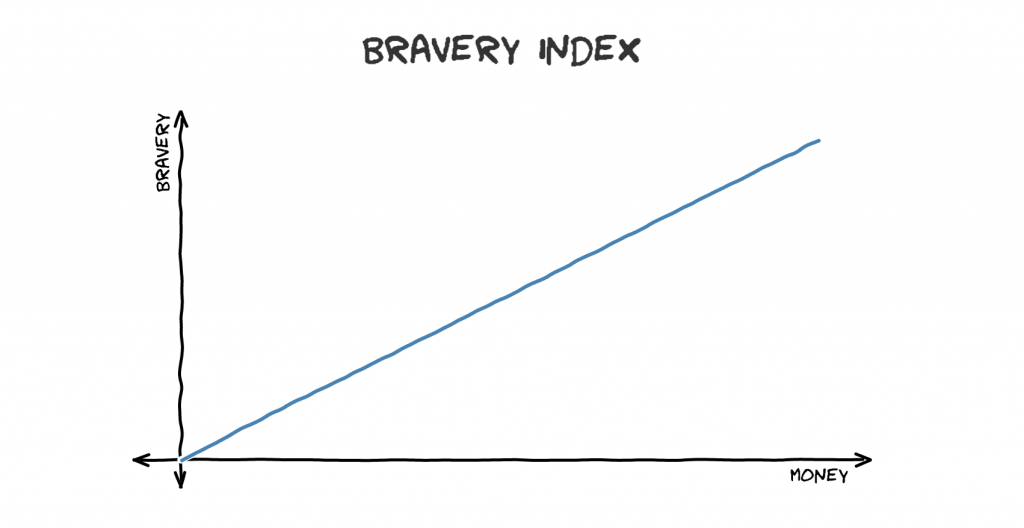
As I mentioned already – don’t be afraid to play poker a little bit, and instead of putting a number on it ask questions to get a bigger idea of what you are signing up to. If you do it in the right way, its just you being professional anyway, and then when you get to saying “I will cost $XXXX for that”, you can make the justification of how you got to that number based on the gig details you’ve been given.
Preparation
Fail to prepare, prepare to fail!
Be thorough in your preparation. Get as much info as you can from the client, without constantly pestering them and becoming a hassle. Does the music selection need to be family friendly? Are there any songs/artists to avoid (you cannot imagine the fuss that blew up when I played a request for Blurred Lines at a tech giant’s Xmas party and somebody complained!)? Do they want modern, classic, a mix of both? Underground and cool, or top 40 and cheesy? Is there a dress code, or a theme for the event? The more you know, the less scope there is to get anything wrong.
One thing that you will likely experience more than once – the confusing brief. “Can you play a selection of fun tunes that are serious, nothing too dancey but that makes you want to move” is the kind of thing I mean. These are all too common when someone who isn’t really all that musical is giving musical directions. I try to encourage them to be as specific as they can – but sometimes you have to try to work it out with a bit of intuition! All too often, the brief is next-to-meaningless, and all that matters is that you read the room, give everyone a great time, and then at the end they’ll say “You smashed the brief, great job!”, regardless of what you actually played!
Aesthetics
Its a good idea to ask them about dress codes or event themes. If its a black tie event, and you turn up in baggy jeans and a scruffy t-shirt, they might not be happy. And you might think that they aren’t happy and it might affect your experience on the night, but maybe they didn’t expect you to dress up like the attendees. They might have something they want you to wear (the black t-shirt in the beach photo higher up the article is an IBM branded one, for instance, at their installation at Cannes Lions), and if so, you want to make sure they give you the right size! So, ask the question in advance.
I personally make a point of dressing a little more “showbiz” for these sorts of events, and shape what that is depending on the dress code or type of event. I want to fit in enough that I look like I belong there, but be dressed in such a way that when I arrive the event organiser can look across the room and go “Oh, I think the DJ is here”. I favour brightly printed patterns on my shirts – my pineapple shirt was a HUGE hit with the online events I did for Monkey Shoulder Lock In Live, people in the chat room couldn’t stop talking about it, and it fitted in with a big part of their graphic design and stage design.
Social Media
Its a very good idea to ask in advance about whether they want things posting to social media or not, and if so, whether they have any hashtags or accounts that they want tagging in. Organisers will generally appreciate the consideration of something like this. Most places really don’t mind, but when I have DJ’d at staff events for Facebook, they have a strict “no social media posts about the event” rule, which is rather ironic. If its really strict, you might be asked to sign an NDA – Non Disclosure Agreement.
Read The Room
At any given event there will be a hierarchy. You will most likely be dealing most directly with an event planner. They might be a professional that a company has brought in to take care of this aspect of proceedings, they might be a staff member from the company who looks after extra-curricular events. Obviously, you want to establish a good rapport with them – if its the former, the company may be an excellent source of different work opportunities, if its the latter, they may have some say in whether you are re-booked for future company events.
But its also a good idea to try and work out who is who – the more senior, the more you want to keep them onside! Upset the billionaire CEO by telling them that their request is terrible… not a good look! Its not a bad idea to simply ask your contact when you arrive – just get them to point out the key people, or maybe even introduce you around if that is possible. They have a vested interest in you smashing your role, and not upsetting anybody!
Find out about the end time – is it a hard stop, with no wiggle room, or is there scope to play on for a bit if the crowd wants more? Who can you legitimately listen to if they ask you to play on for a while – I did a Christmas party where I was booked for 3 hours. They kept on coming over and saying “could you do an extra hour?” Ultimately I did 7 hours, more than doubling my fee – but I only agreed to that because I knew that the person asking me could vouch for the fact I would receive the extra money when I invoiced for it.
Contracts
These are not always necessary (and in my experience, quite unusual unless I am working through a booking agency), but there is certainly no harm in protecting both yourself and the client with a contract. This formalises the expectations of the client, the timings, the fee – it removes an awful lot of the possibilities for misunderstandings.
You can also potentially negotiate a deposit (if doing this I usually make it 25% of the total fee) to secure the date.
Obviously, in an ideal world you would get a lawyer to draw you something up bespoke, but not everybody has the budget to get that done. Fortunately, a lot of templates exist online – I would recommend Googling “DJ Contract Template” or similar and going through a few options to see what looks right, and maybe editing whatever you choose to be right for the event in question. Ideally look for templates that are based on the legal system you are in!
Getting Paid
This is a big part of why you are doing these gigs – so make sure you do the homework and prep on how you will get paid. Often, its a bit more complicated than simply turn up, sign an invoice, get handed an envelope full of cash or have the money transfered into your account a day or two later.
Very often for such clients, I have to be added to their payroll system before they can give me a purchase order number, and I can’t invoice without the PO number. And just as often, the wheels of these accounts departments move verrrrryyyyyyy slooooooowwwwwwwlllyyyyyyyyy. Don’t be shocked if the payment takes a considerable length of time – I’ve known it to be a couple of months before i get paid. If this is something you are not prepared to put up with, make sure you have it included on the contract that you will be paid within X period of time. My invoices always include the line at the bottom
“All invoices which exceed a 30 day term will incur;
Administration fee (£40) and interest calculated at 8% + the Bank of England Base rate.”
This is the maximum allowed under UK law. Speak to an accountant or lawyer to find out what is permissible in your territory. I have never actually had to enforce this penalty, and would only do so as a last resort. But it acts as a very useful accelerant when you can email the accounts department and say “the payment now falls outside the terms I set out in the invoice, will this be paid this week?” – they take a look at the invoice, realise things need to happen ASAP, and almost always pay straight away. Be aware – if you enforce this penalty, you might be burning a bridge that could be worth thousands down the years ahead, so in my opinion, only use it as the nuclear option.
Tips From The Team
The Heavy Hits team has plenty of experience DJing at corporate events, and here’s a few suggestions they gave to make sure you rock it.
Serg Sniper makes these observations
Try to get or make an itinerary listing the sequence that planned activities happen.
1. Like cocktail start time and end.
2. Expected dinner serving time.
3. Speeches or group activities.
4. Party time
5. Who is your point of contact at the event because sometimes there is more than one person trying to tell you what to do.
6. Parking options
7. Figure out what route is the best to take and how long it takes depending on the scheduled time of the event.
For example : If the event starts at 6pm on a weekday, you’re going to likely hit traffic you wouldn’t normally see if you always do weekend events.
8. Clean library of music a must.
9. Always have a contract for your and the clients protection.
10. Having DJ Insurance doesn’t hurt [many clients will want you to have Public Liability Insurance, and for any electrical equipment to be tested annualy for safety]
Often an event planner will be able to provide you with a detailed itinerary – if that’s the case, read it, absorb it, and save it on your phone so you can refer to it on the day! The clean library is a great point – I always check if they want things to be family friendly, and if I don’t get a clear answer, I assume that they do.
DJ Chemics had this to say –
1. Show up early (at least 1-3 hours early to make sure equipment is set up and you’re ready to go)
2. Plan out your DJ set (get as much information from the client, to know what style of music fits your event)
3. Always have a plan B (in case your equipment or laptops fails you, have a backup music source)
4. Make sure you have got everything for the gig (do a checklist of all the equipment that is required for this gig
5. Play to the crowd (always read the room when you’re playing, and back that up with your MC skills.
6. Relax, you got this (anhale and exhale, you got this)
Some valuable points here – some of which are expanded on in this previous article called Be Prepared! One thing which I wish I had worked on earlier in my career is my mic skills – this is a huge advantage at a corporate type of show, where it is often expected that you will be able to make announcements and guide an event from one section to another. Being able to double as a host makes you far more valuable to a client than solely being a DJ playing music.
The ever stylish don that is Schuller gives the simple guidance – “Dress to impress for corporate gigs”. And DJ AndOne has a few crucial pieces of advice – “link up with a talent agency, 80% of your work is done before the gig even starts, and understand what your role is”. The talent agency thing is solid advice – sure, they’ll be taking a chunk of your fee, but they will most likely have a considerably larger contact network than you do, and as a result will be able to place you in far more gigs. A percentage of a lot is better than all of not very much! And the more you do these events, the better you will get at them, and the more your name will spread around the people who set them up.
DJ Soto offers this advice; “Make sure you connect with the event planner to know what genres of music to play. A checklist is hella key. In the beginning I can’t tell you how many times I either forgot a charger, a power cord, etc.” At a club, these things are often easily fixed by speaking to the sound guy – at a corporate event, maybe they’ve hired in sound & light and they can help, but if not…
Have Fun!
So, there’s plenty there to take in and work from. But the biggest thing I can say is – enjoy yourself, and make it clear you are enjoying yourself. Crowds vibe off the energy coming from the booth, and corporate gigs can be quite stuffy affairs. If you are bouncing around and smiling behind the decks, the audience starts to feel like it has permission to relax and enjoy themselves more, and the client feels like you are doing what you are most likely to be there for – bringing the party, bringing the fun times!
One thing is for sure – the Heavy Hits record pool has an amazing selection of tracks for corporate events of all styles, and is very careful to make sure things are correctly labeled clean and dirty. Go and get digging, so that you are ready for when the opportunity arrives! And check out the Heavy Hits socials at Instagram, Facebook and Twitter. You can find me on Twitch, Instagram and Twitter.


